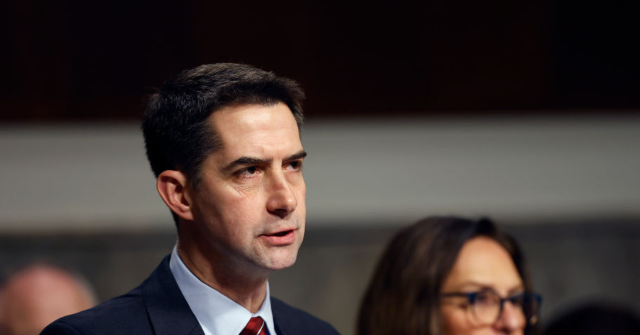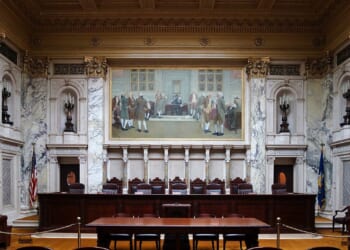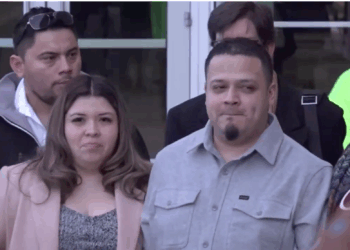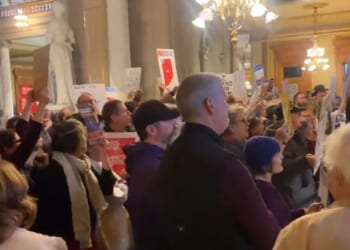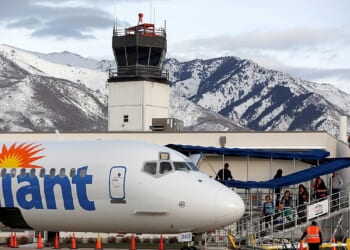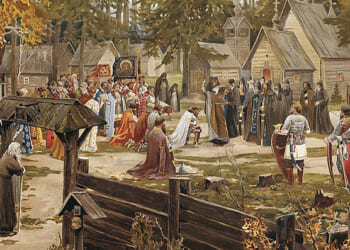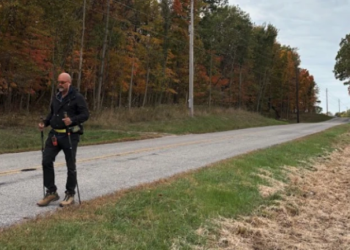Sen. Tom Cotton (R-AR) will introduce a bill on Tuesday that would sharply reduce the number of H-1B migrants working in U.S. white-collar jobs.
The bill, to be announced Tuesday morning, would begin to count visa renewals as new visas, so ending the current practice of allowing unlimited renewals for most of the 85,000 visas granted to companies each year.
The unlimited renewals policy allows roughly 750,000 H-1B visa holders to retain white-collar, career-track jobs that would otherwise have gone to young U.S. graduates. Without the exemption, the number of company-employed H-1B visa holders would drop to roughly 250,000.
The Cotton bill would also end the policy of exempting H-1B visas from the 85,000 limit if they are awarded to non-profits, which include corporate-affiliated research centers, universities, hospitals, and government K-12 teaching jobs. The non-profit H-1B workforce is large and growing, and is also harming many young Americans who are both skilled and eager for careers in laboratories, hospitals, lecture halls, and classrooms.
A 2016 count by Breitbart News showed that roughly 100,000 H-1B and J-1 visa workers were employed by the non-profit sector.
“Colleges and universities shouldn’t get special treatment for bringing in woke and anti-American professors from around the world. My bill closes these loopholes that universities have abused for far too long,” Cotton said in a press statement.
Cotton’s draft bill would pressure companies to accept job applications from the growing lack of underemployed and unemployed American STEM graduates.
“Reducing the number of foreign workers being imported to replace American workers is a good thing,” said Rosemary Jenks, cofounder and policy director of the Immigration Accountability Project. “But the H-1B program needs to be eliminated,” she added.
The bill joins the rush of other reform plans being pushed by Sen. Jim Banks (R-OH), Sen. Eric Schmitt (R-MO), Sen. Chuck Grassley (R-IA), and by President Donald Trump.
“The large-scale replacement of American workers through systemic abuse of the program has undermined both our economic and national security,” said the September 19 proclamation by Trump establishing modest curbs on the H-1B program:
The number of foreign STEM workers in the United States has more than doubled between 2000 and 2019, increasing from 1.2 million to almost 2.5 million, while overall STEM employment has only increased 44.5 percent during that time. Among computer and math occupations, the foreign share of the workforce grew from 17.7 percent in 2000 to 26.1 percent in 2019. And the key facilitator for this influx of foreign STEM labor has been the abuse of the H-1B visa.
…
The abuse of the H-1B program is also a national security threat. Domestic law enforcement agencies have identified and investigated H-1B-reliant outsourcing companies for engaging in visa fraud, conspiracy to launder money, conspiracy under the Racketeer Influenced and Corrupt Organizations Act, and other illicit activities to encourage foreign workers to come to the United States.
A recent survey showed that a large majority of Democrat-leaning tech professionals see the H-1B program as a threat to their careers.
The survey reported 56 percent of the Americans polled said “they view H-1B visa holders as direct competitors for jobs.” Sixty percent of U.S. citizens said that “U.S. citizens and green card holders should be given hiring priority.”
NBC News reported in August:
Adam Mitchell thought he was doing everything right. He majored in computer science at Georgia State University and interned at State Farm doing web development. He’d been told since he was a teenager that a degree in computer science was a guaranteed path to a high-paying job right out of college.
“I was under the impression that since I’ve got three years of internship experience under my belt, this will be a cakewalk,” Mitchell said. “I was pretty quickly humbled. There’s nothing available.”
More than seven months after graduating, he’s applied for more than 100 jobs and gotten two interviews and only one job offer — for the 4 a.m. shift at Starbucks, which he didn’t take because the hours would make it too hard to pursue other opportunities. Among the jobs that turned him down: an hourly role at Costco and a customer service job in the call center at State Farm.
“I’m just kind of looking for anything,” he said. “I don’t know if the tech-side economy is ever going to be the same again.”

